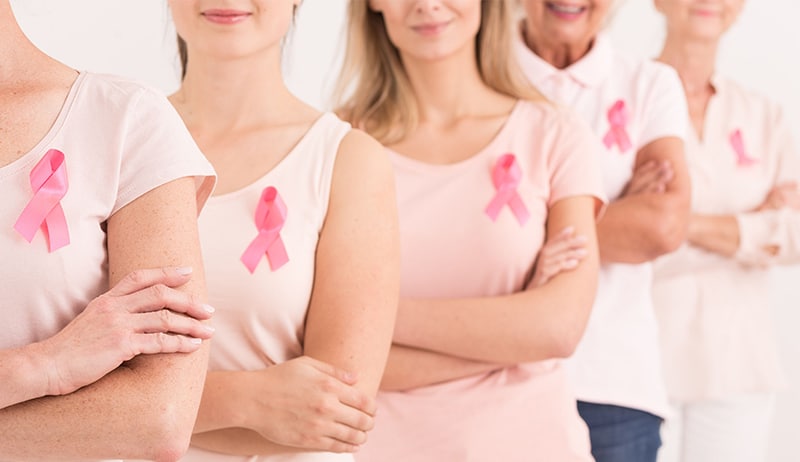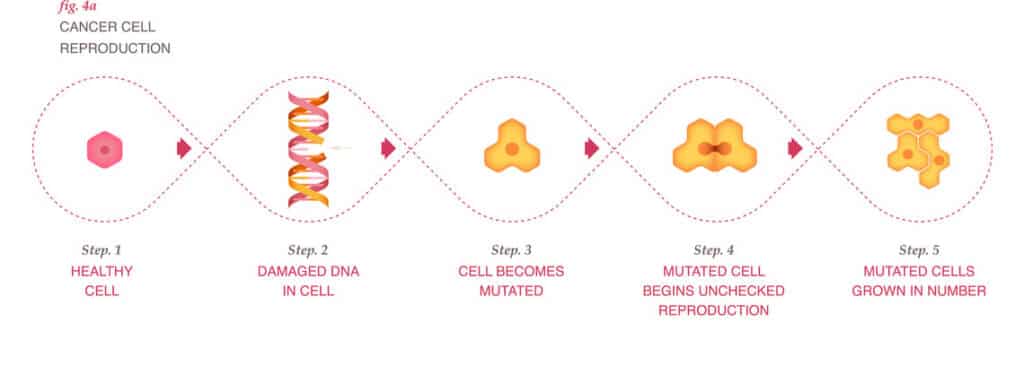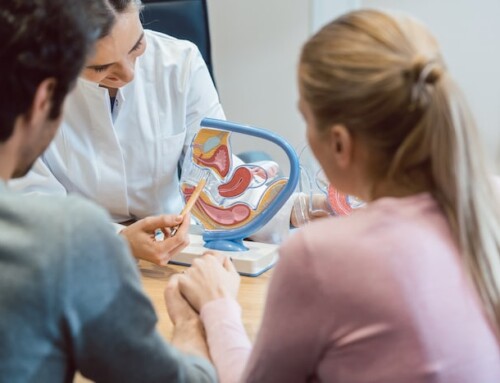Breast Cancer Awareness Month
Did you know that 1 in 8 women will be diagnosed with breast cancer in her lifetime?
According to the WHO (World Health Organization), breast cancer is the most common cancer type among women worldwide, impacting 2.1 million women every year.

What is Breast Cancer?
Understanding Breast Cancer
The formation and proliferation of cancer cells in the milk ducts or milk glands in the breast tissue is called breast cancer. In this type of cancer, the formation and proliferation of malignant cells proceed very slowly at the beginning.
The cancer is usually asymptomatic in the early period. Therefore, early detection of breast cancer in women who do not have routine screening becomes very difficult. Initially, as the stage of the disease progresses slowly in breast cancer, the proliferation rate of cancer cells may increase and spread to different tissues and organs. Treatment success is very high in breast cancer cases diagnosed without spreading to other parts of the body via blood and lymph.
Breast cancer occurs almost exclusively in women, but men can get breast cancer, too. As with all cancer types, early diagnosis and treatment of breast cancer are very important.
How Does Breast Cancer Start?
Changes or mutations in DNA can cause healthy breast cells to become cancer. Specific DNA changes are transferred on from parents (received) and can significantly raise your risk for breast cancer. Lifestyle-related risk factors, such as how much you exercise and what you eat, can also increase your risk of forming breast cancer. But it’s not known exactly how some of these risk factors affect healthy cells to become cancer.

What are the symptoms of breast cancer?
Most breast cancer symptoms are invisible and not noticeable without a professional scanning, like ultrasound or a mammogram.
There are other symptoms; however, that can be felt or observed when you are proactive about your breast health.
Earlier diagnosis of breast cancer means that the higher the chance of successful treatment. So it is essential to check your breasts frequently and see your doctor if you notice a difference.
Common breast cancer symptoms include:
Swelling in the chest or armpit
Discharge from the nipple
Deformity, collapse and discolouration of the nipple
Eczema-like skin rash and peeling of the nipple
Redness and wound formation on the nipple
Weight loss
Breast Pain
You should see your doctor about any of these signs. Usually, these symptoms are not due to cancer. If you notice any differences in your body, see your doctor quickly so that the problems can be diagnosed and treated.
Early Detection and Diagnosis
Breast cancer is sometimes found after signs appear, but many women with breast cancer have no symptoms. That is why routine breast cancer screening is so important.Early detection means discovering cancer before it spreads. Breast cancer cannot prevent, but early detection gives the highest possibility of successful treatment.Breast cancer can be diagnosed through various tests, including ultrasound, mammogram, biopsy and MRI.
By following these three steps, you will help increase your chances of detecting breast cancer early.
Things to remember
According to Team Miracle taking a prenatal vitamin is the best way to ensure you are getting enough folic acid on your fertility journey, but you can also attach a diet plan to your intake, as well. Foods like leafy green vegetables, legumes and citrus juices which I listed before. And don’t worry – there is no such thing as too much folic acid, both supplement and dietary intake combined.
Folic acid is a necessary nutrient that every woman should take when planning to get pregnant. So kick off your day with a freshly squeezed orange juice, a handful of nuts or green smoothie. You will be glad you did!
1. BREAST SELF-AWARENESS
It may help you get familiar with how your breasts normally look and feel. Understanding this will help you know about any changes in your breasts that should be reported to your doctor quickly.
2.WELL-WOMAN EXAM
It recommends that women visit their family physician or gynaecologist each year for a Well-Woman Exam. In addition to a regular pelvic exam and pap smear, the doctor may perform a brief breast exam to check for abnormalities.
3. MAMMOGRAM
In the early stages, breast cancer doesn’t usually cause symptoms. NBCF suggests that women ages 40 and older get a mammogram each year. A mammogram is an X-ray of the breast. It is a dependable way to detect cancerous tumours and other unusual breast conditions.
SCREENING SCHEDULE
You will see below some standard guidelines for breast cancer early detection methods. You should always consult with your doctor to create a screening schedule that is most appropriate for you.
EXAM AGE FREQUENCY
You will see below some standard guidelines for breast cancer early detection methods. You should always consult with your doctor to create a screening schedule that is most appropriate for you.
| EXAM | AGE | FREQUENCY |
|---|---|---|
| Breast Self-Awareness | 18+ | Regularly/Monthly |
| Well-Woman Exam | 21+ | Yearly |
| Mammogram | 40+ | Yearly |
Wear It Pink
Wear It Pink campaign to raise awareness about Breast Cancer.
Wear it Pink day is one of the most significant fundraising events in the UK and it’s organising by Breast Cancer Now. A charity consecrated to research into preventing breast cancer, detecting it earlier, and treating the disease correctly at each stage to ensure it takes as few lives as possible.
The aim of Wear it Pink day is to raise awareness of breast cancer and to fund money for Breast Cancer Now. This event began in 2002 and takes place in October, being part of breast cancer awareness month.
‘’About wear it pink Breast Cancer Now’s wear it pink day is one of the biggest fundraising events in the UK. Taking place during Breast Cancer Awareness Month in October, thousands of amazing people will wear it pink in their communities, schools or workplaces for the UK’s largest breast cancer charity, Breast Cancer Now.’’
Find out more about the campaign and getting involved here.





